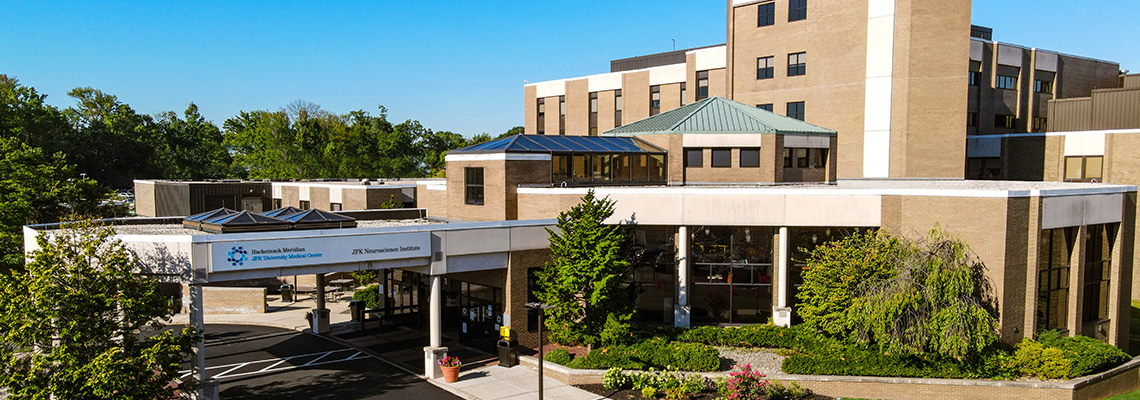Program Details
About the Program
Each resident is assigned a faculty adviser who provides an introduction to the program and acts as a career mentor. Residents begin their three year program with an intensive review of the core internal medicine specialties.
We have a robust Night Float system in all three years that we instituted in 2020, eliminating the 24 hour calls in our program.
PGY-1 residents spend two thirds of their clinical activity time in an inpatient setting including on the medical floors and critical care units. Residents spend a third of the time in an ambulatory care setting at the outpatient continuity care clinic at Central Jersey Medical Center, women’s health center and the Roosevelt Rehabilitation Center. PGY-1 residents work an extended shift, on average, every fourth day. Our extended shifts end at 10 PM.
PGY-2 residents work an extended shift, on average, every fourth day excluding Elective and Ambulatory Blocks. Extended shifts end at 10 PM. Once every ambulatory block, the PGYII will be responsible for an overnight call.
PGY-3 residents are on call an average of every fourth day excluding Elective, Ambulatory, and Emergency Room Blocks. Extended shifts end at 10 PM. Once every ambulatory block, the PGYII will be responsible for an overnight call.
In compliance with ACGME guidelines, residents receive at least one day off each week on average and duties are limited to far less than 80 hours weekly.

Block Schedule
We follow a 6+2 block schedule. This equates to 6 weeks of inpatient rotations followed by 2 weeks of dedicated ambulatory/outpatient experience. 1 block = 2 weeks
PGY1
- General Internal Medicine floors (6 blocks)
- ICU/CCU (3.5 blocks)
- Elective (2 blocks)
- Vacation (2 blocks)
- Ambulatory (7 blocks)
- Neurology (1-2 blocks)
- Night Float (3 blocks)
PGY2
- General Internal Medicine floors (6 blocks)
- ICU/CCU (6 blocks)
- Ambulatory (6-7 blocks)
- Infectious Disease (2 blocks)
- Elective (3-4 blocks)
- Night Float (3 blocks)
- Vacation (2 blocks)
PGY3
- MRD (3 blocks)
- Cardiopulmonary (3 blocks)
- Endocrinology (1 block)
- Hematology/Oncology(1 block)
- Gastroenterology (1 block)
- Palliative/Addiction (1 block)
- Ambulatory (6 blocks)
- Night Float (3 blocks)
- Emergency Medicine (1 block)
- Elective (2-3 blocks)
- Vacation (2 blocks)
Each resident is assigned a faculty adviser who provides an introduction to the program and serves as a career mentor throughout their training. Our program is dedicated to training compassionate, skilled physicians who are leaders in clinical practice, medical education, and research. Residents begin the three-year program with an intensive review of core internal medicine specialties.
We follow an X+Y schedule, with six weeks focused on inpatient care and two weeks in the outpatient continuity clinic. This approach ensures comprehensive patient care and a balanced experience in both inpatient and ambulatory settings. We do not have 24-hour calls; instead, our robust Night Float system, instituted in 2020, is used across all three years to maintain resident wellness and ensure patient care continuity. Residents are supported 24/7 by two senior residents in-house, promoting a culture of collaboration and learning.
Clinical Training: PGY-1 residents spend two-thirds of their clinical activity on the medical floors and in critical care units, and the remaining one-third in ambulatory care settings at our outpatient continuity clinic, women’s health center, and the Roosevelt Rehabilitation Center. As residents progress, PGY-2 and PGY-3 residents continue to deepen their clinical expertise, with tailored experiences in specialty rotations and leadership opportunities.
In compliance with ACGME guidelines, residents receive at least one day off each week on average, and work hours are limited to far less than the 80-hour weekly maximum.
Research
JFK Internal Medicine encourages and fosters a strong research and scholarly ambience. Residents under the supervision of faculty members pursue and publish case-based, prospective and retrospective studies. Residents routinely present abstracts and research papers at various regional and national conference`s. All scholarly and research activities are governed and implemented through a dedicated research committee composed of both residents and faculty members. Our residents have recently featured their work at CHEST, ACP, and ATS conferences.

